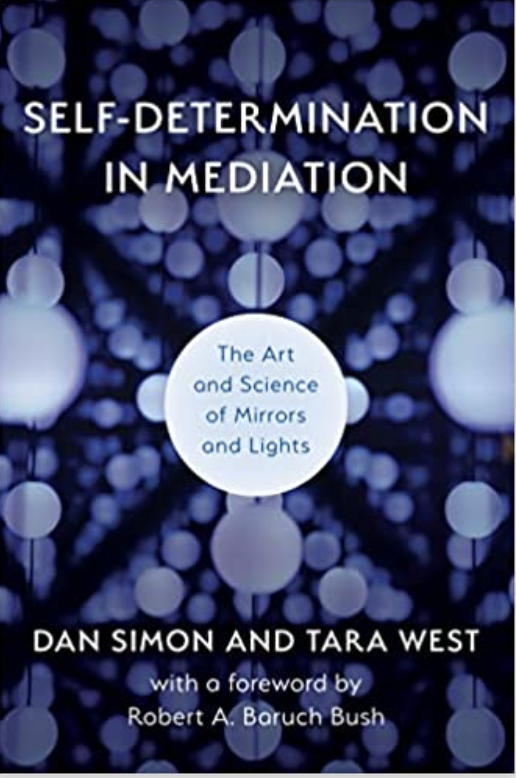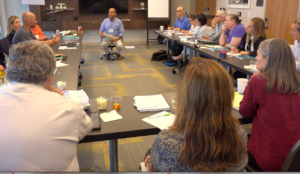
Tara West and I wanted to explore how mediators can maximize parties’ sense of agency throughout the process. So we wrote Self-Determination in Mediation: The Art and Science of Mirrors and Lights. We discuss how mediators tend to control the process far more than they need to. Sometimes they’re motivated by the hope that they can nudge the parties toward agreement, other times they hope to protect one party from the other, often they naturally want to appear competent and effective. Usually, attempts to get parties to do anything in particular does more harm than good. That reality raises the question of just what mediators can do to enhance party agency, as well as maximize the chances of other good outcomes.
The answer, as we see it, boils down to honoring parties’ choices in each moment of the process about everything possible. The book describes how we first, leave every possible process choice to the parties. Second, we explore how we hold up a “mirror” to the parties, often reflecting back what they’ve said in their own words. Third, we discuss how we shine “lights” on the situation the parties are in and on their opportunities to make more choices. In addition to telling mediation stories, we explore the research that supports our suggestions.
One of the bodies of research we describe is connected to “self-determination theory”, which posits that people have the fundamental need for autonomy, competence, and connection. We discover that in the context of mediation, meeting these needs is especially important. Conflict is characterized by a sense of diminished autonomy, competence and connection. If those needs can be met in the process, better decisions are also likely to emerge.

 Short answer, anyone who’s interested. The people who attend my courses have ranged in age from 18 to 90. They’ve been college students, law students, psychology students, lawyers, therapists, coaches, judges, retired judges, teachers, human resources professionals, police officers and just about every other profession. We all have conflict in our lives. A course on transformative mediation will give you a way to think about conflict that will help you (1) notice when you’re engaging in conflict destructively (2) do what it takes to get yourself to a clearer, stronger place and (3) make better choices about your interactions.
Short answer, anyone who’s interested. The people who attend my courses have ranged in age from 18 to 90. They’ve been college students, law students, psychology students, lawyers, therapists, coaches, judges, retired judges, teachers, human resources professionals, police officers and just about every other profession. We all have conflict in our lives. A course on transformative mediation will give you a way to think about conflict that will help you (1) notice when you’re engaging in conflict destructively (2) do what it takes to get yourself to a clearer, stronger place and (3) make better choices about your interactions.
